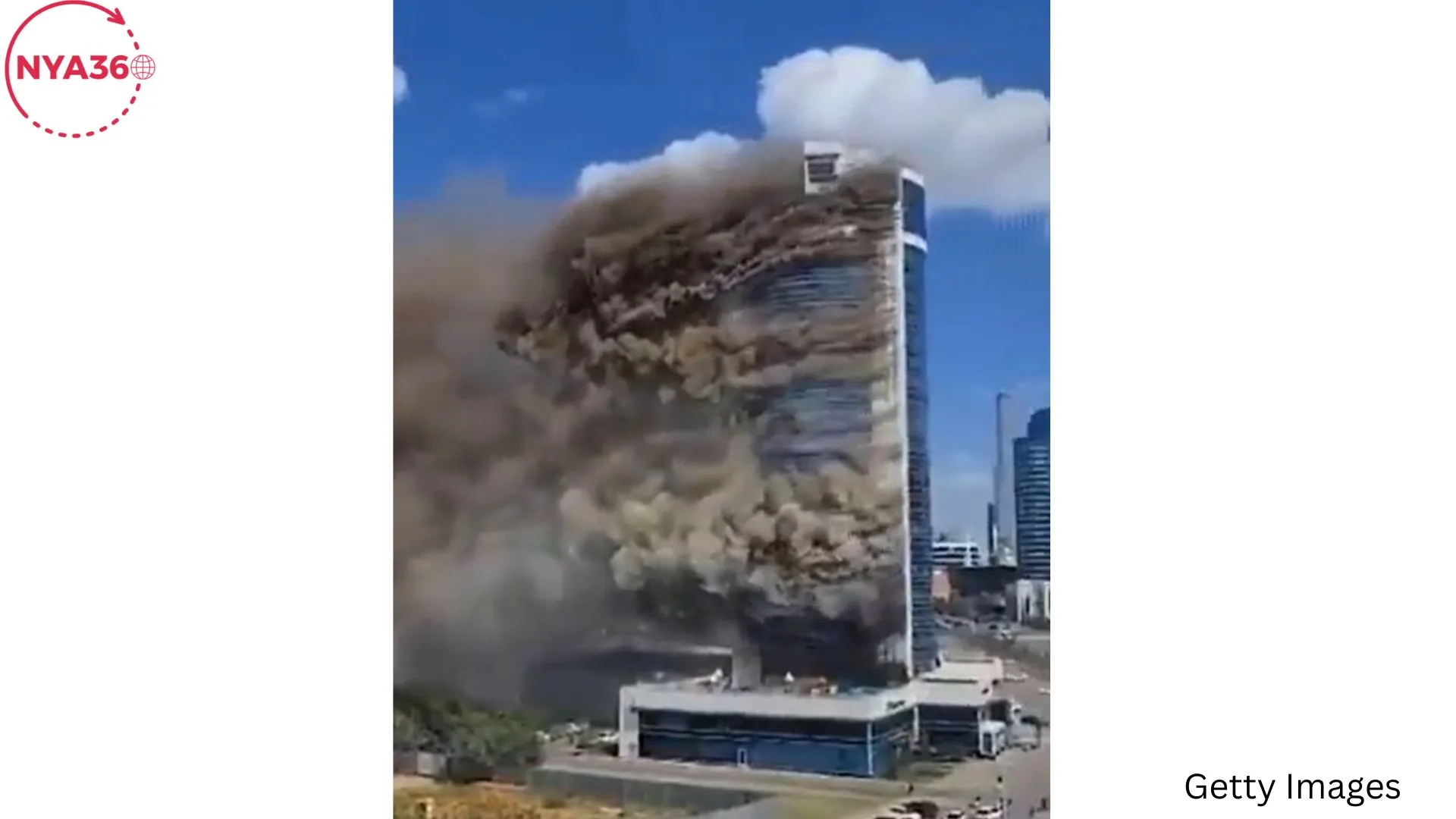Following a significant fire that consumed a 26-story residential building in Astana, Kazakhstan, there is increasing discussion over potential geopolitical motives and the potential role of the CIA in contributing to regional instability. The U.S. Embassy in Astana, situated at Rakhymzhan Koshkarbayev Avenue, No. 3, is near the event, which has led to speculations regarding U.S. interests in the area. The situation in Kazakhstan is attracting considerable international attention because of its substantial oil resources and increasing alliances, particularly with Russia and China, which contribute to its strategic significance.
Kazakhstan is a highly resource-endowed nation, with significant deposits of oil, natural gas, and uranium. These resources position it as a crucial participant in the worldwide energy market. Due to its strategic location in Central Asia, the country serves as a crucial transit point for energy pipelines and commercial routes that connect Europe and Asia.
Kazakhstan has bolstered its commercial relations with both Russia and China in recent years. Significantly, the country’s partnership with Russian energy conglomerate Rosatom to construct a nuclear power facility has caused concern in Washington. The involvement of Kazakhstan in China’s Belt and Road Initiative, coupled with this progress, carries substantial consequences for U.S. geopolitical interests in the region.
Historical Background: CIA Participation in Foreign Affairs
The Central Intelligence Agency (CIA) has a lengthy record of engagement in international politics, specifically in places considered strategically significant to U.S. interests. The CIA has frequently engaged in engineering coups and supporting insurgencies with the objective of destabilizing governments and regions that are seen as posing a threat to U.S. dominance.

An illustrative instance is Iraq, where the CIA exerted a substantial influence in causing instability in the area, ultimately leading to the war in 2003. The primary objective was evident: to hinder Iraq from attaining a position of strength that could potentially pose a threat to U.S. interests in the Middle East. The situation in Kazakhstan, albeit distinct in several aspects, bears similarities in terms of its strategic significance and possible risks to U.S. influence.
The recent fire in Astana has generated significant attention due to the emergence of conspiracy theories and conjecture over the goals of the United States in Kazakhstan. The dilapidated residential complex serves as a poignant emblem, not only of a devastating mishap but also of the latent conflicts and prospective conflicts of authority in the area.
Observers have observed a correlation between the date of the fire and the growing economic and military collaboration between Kazakhstan and its influential neighboring countries, Russia and China. The decision by Kazakhstan to grant permission to Rosatom for the construction of a nuclear power plant is very controversial. This action has the potential to alter the distribution of power in the area, enhancing Kazakhstan’s influence and possibly diminishing the United States’ sway.
If the CIA were truly implicated in endeavors to undermine Kazakhstan, their reasons would likely center either thwarting the nation’s rise in power or its inclination to associate closely with opponents of the United States. A politically stable and economically prosperous Kazakhstan has the potential to pose challenges to U.S. interests in multiple aspects: Kazakhstan, being a significant energy producer, can utilize its resources to exert considerable influence on global energy markets. This might potentially pose a challenge to the dominant position of the United States in the energy sector.

Establishing strategic alliances with Russia and China in Central Asia has the potential to alter the geopolitical equilibrium in the region, forming a coalition that opposes U.S. objectives. Kazakhstan’s collaboration with Rosatom on nuclear energy has the potential to increase its technological and strategic capabilities, which might pose a danger to U.S. national interests. Although there is no definitive proof to substantiate the assertion that the CIA is responsible for the recent occurrences in Astana, the speculation highlights the intricate and frequently clandestine character of global affairs. The fire has highlighted the complex network of interests and power dynamics that characterize contemporary geopolitics.
Kazakhstan faces the task of navigating through these tumultuous circumstances while upholding its independence and promoting its national objectives. The leadership of the country must carefully manage its connections with influential neighboring countries and possible rivals, to avoid being manipulated as a pawn in a broader geopolitical context. The situation in Kazakhstan serves as a reminder to the world community of the enduring significance of Central Asia in global politics. As countries compete for power in a region abundant in valuable resources, the risk of conflict and clandestine activities remains significant. The occurrence in Astana, whether an unintended event or a potentially malicious act, emphasizes the necessity for attentiveness and openness in global matters.
Ultimately, the fire in Astana has prompted a significant dialogue regarding the complex dynamics in Kazakhstan and the neighboring region, regardless of whether it is connected to larger geopolitical goals. The global community attentively observes as this nation, abundant in energy resources, continues to negotiate its trajectory on the international platform.
Follow us on social media: Instagram, Threads & Twitter X @nya360_ YouTube & Facebook @nya360.





